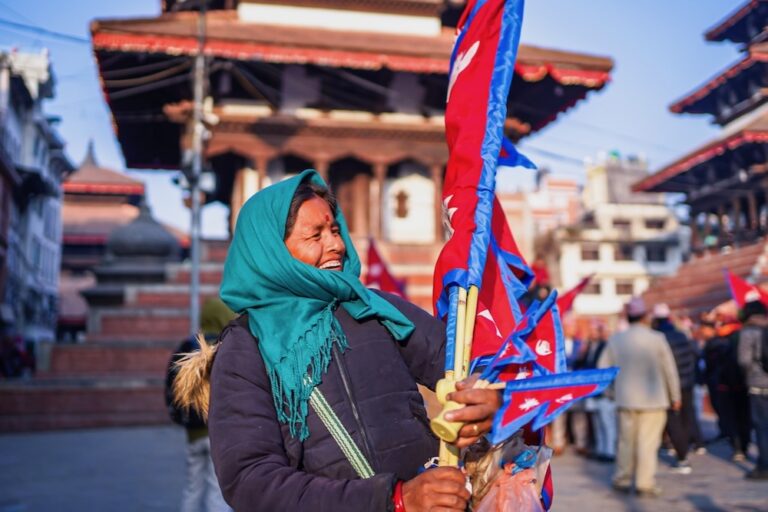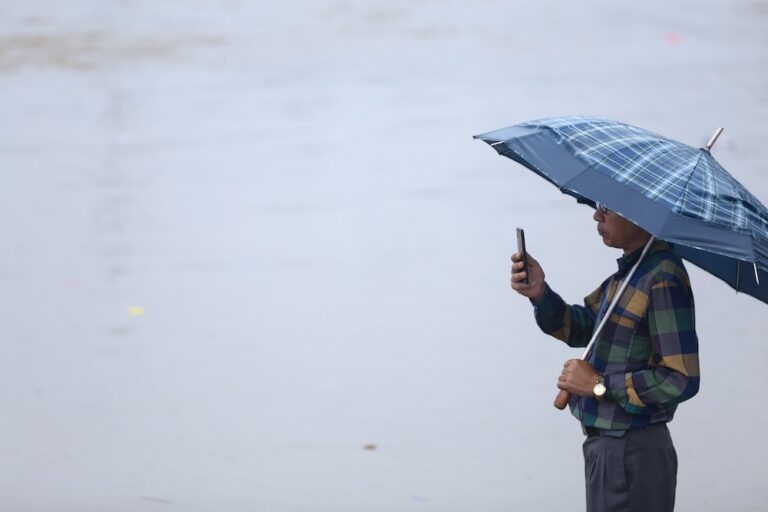(CEHURDES/IFEX) – On 16 April 2004, the security forces arrested nearly 60 journalists in two different incidents in Kathmandu. In the Ratnapark area, the security forces arrested approximately 47 journalists. The incident occurred while the journalists were reporting on a protest organised by five major political parties. According to CEHURDES’s sources, the journalists were detained […]
(CEHURDES/IFEX) – On 16 April 2004, the security forces arrested nearly 60 journalists in two different incidents in Kathmandu. In the Ratnapark area, the security forces arrested approximately 47 journalists. The incident occurred while the journalists were reporting on a protest organised by five major political parties.
According to CEHURDES’s sources, the journalists were detained at Singhadurbar police station until 9:00 p.m. (local time) on 16 April. An additional 13 journalists were arrested while they were protesting the detention of their colleagues. They were taken to the Armed Police Force headquarters, in Halchowk, Swayambhu, and also detained until 9:00 p.m.
In a separate incident, the Jumla district local administration office sentenced journalist K. B. Jumli (Khadga Bahadur Swar) to 90 days in prison for his alleged involvement in Communist Party of Nepal (CPN-Maoist) activities. According to the daily “Nepal Samacharpatra”, Jumli was arrested at his residence on 4 April and transferred to the local prison on 11 April. Jumli had been working as a local correspondent for “Nepal Samacharpatra” and has also worked as a primary school teacher in Jumla district.
CEHURDES condemns the journalists’ arrests and urges the security forces and authorities to immediately release all journalists who have been detained. In addition, the organisation calls on the security forces and authorities to ensure that journalists can work in an environment that is conducive to independent news reporting and that the fundamental rights of journalists, free expression activists and other citizens are respected.
BACKGROUND:
On 27 August 2003, after three rounds of talks, Maoist rebels broke a seven-month ceasefire declared on 29 January, following the king’s assumption of executive power on 4 October 2002. The Communist Party of Nepal (CPN-Maoist) rebels said they broke off the dialogue because the government did not seem serious about addressing their primary political demand for a constituent assembly election to draft a new constitution. The government declared the CPN-Maoist rebels to be “terrorists” on 28 August 2003 and relieved negotiators of their duties the next day.
On 2 September, the government issued “prohibition” orders in parts of the Kathmandu valley. All rallies, gatherings and sit-ins, as well as the writing and distribution of pamphlets, were banned from 2 to 23 September. On 23 September, the ban was extended until 26 September, and was ongoing in certain Kathmandu valley areas. The ban was renewed on 8 April 2004. The order prohibits gatherings of five or more people in public places, except for religious or customary purposes.
On 26 November 2001, CPN-Maoist rebels broke a ceasefire under similar circumstances after three rounds of talks. The government declared them to be “terrorists” and imposed a state of emergency.
The five main political parties continue to protest the “regression”, an action taken by King Gyanedra in October 2002. They have been calling for the restoration of democratic norms and principles in the country since the beginning of 2003.
Recently, the security forces arrested thousands of protesters, including senior political party leaders, violating basic human rights, such as the rights to free assembly and freedom of expression.
CPN-Maoist rebels have been waging a “people’s war” since February 1996 to abolish the monarchy and establish a republican state. More than 10,000 people have been killed by the security forces and Maoist rebels in the ensuing violence.


